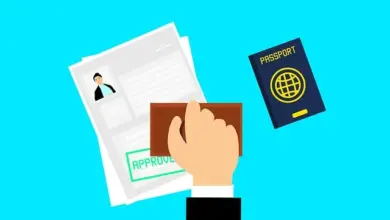How to Request a Scholarship Recommendation Letter

A strong recommendation letter can significantly boost your chances of securing a scholarship. It provides insight into your character, achievements, and potential—qualities that grades and test scores alone cannot convey. However, asking for a recommendation letter requires tact, preparation, and professionalism. In this guide, we’ll walk you through the process of requesting a scholarship recommendation letter effectively, ensuring you receive a glowing endorsement from your recommender.
1. Choose the Right Recommender
The first step is selecting someone who knows you well and can speak to your strengths in a meaningful way. Ideally, your recommender should have firsthand knowledge of your academic abilities, leadership skills, or community involvement.
Who to Ask
- Teachers or Professors: They can highlight your academic performance, intellectual curiosity, and classroom contributions.
- Employers or Supervisors: If the scholarship emphasizes work ethic or leadership, a supervisor can attest to your professional qualities.
- Mentors or Advisors: Someone who has guided you in extracurricular activities, research projects, or personal development.
- Community Leaders: If you’ve been involved in volunteer work or community service, a leader from that organization can vouch for your commitment.
Tip: Avoid asking family members or close friends, as their recommendations may lack objectivity.
2. Plan Ahead and Give Ample Time
Requesting a recommendation letter last minute puts unnecessary pressure on your recommender and may result in a rushed or generic letter. Aim to ask at least 3–4 weeks before the deadline to give them sufficient time to write thoughtfully.
How to Gauge Availability
Before making the request, check if the person is available and willing to help. You might say:
“I’m applying for a scholarship that requires a recommendation letter, and I believe you’d be the perfect person to write it because of your insight into my [specific quality or achievement]. Would you feel comfortable supporting my application?”
If they agree, express gratitude and provide all necessary details promptly.
3. Make Your Request Personal and Professional
When asking for a recommendation, approach the conversation with respect and clarity. Whether you’re speaking in person, via email, or over the phone, ensure your request is polite and specific.
Sample Email Template
Here’s an example of how to structure your email:
Subject: Request for Scholarship Recommendation Letter
Dear [Recommender’s Name],
I hope this message finds you well. I am currently applying for the [Name of Scholarship], which supports students pursuing [brief description of the scholarship’s focus]. As part of the application, I need a recommendation letter from someone who can speak to my [specific qualities, e.g., academic achievements, leadership abilities, etc.].
Given your guidance during [specific experience, such as a class, project, or activity], I truly value your perspective and would be honored if you could write a recommendation letter on my behalf. Your insights into my [specific skill or trait] would greatly strengthen my application.
The deadline for submission is [date], and I wanted to give you plentyof time to consider this request. Please let me know if you’re available to assist—I’d be happy to provide any additional information or materials to make the process easier.
Thank you so much for considering my request. I deeply appreciate your support!
Best regards,
[Your Full Name]
[Your Contact Information]
Why This Works:
- It’s concise yet detailed.
- It explains why you chose them specifically.
- It acknowledges their time and offers assistance.
4. Provide Supporting Materials
To help your recommender craft a compelling letter, supply them with relevant information about your background, accomplishments, and goals. This ensures the letter aligns with the scholarship criteria and reflects your best qualities.
What to Include
- Your Resume/CV: A summary of your education, work experience, volunteer activities, and achievements.
- Scholarship Details: Share the scholarship’s mission, eligibility requirements, and selection criteria.
- Key Points to Highlight: Mention specific traits, experiences, or anecdotes you’d like them to emphasize.
- Submission Guidelines: Provide instructions for submitting the letter (e.g., online portal, email address) and the deadline.
Pro Tip: Write a brief paragraph summarizing why you’re passionate about the scholarship and how it aligns with your future plans. This gives your recommender context and inspiration.
5. Follow Up Politely
After sending your initial request, follow up gently to confirm receipt and answer any questions they may have. For example:
“Hi [Recommender’s Name], I just wanted to check in to see if you received my request for the scholarship recommendation letter. Please don’t hesitate to reach out if you need anything else from me—I really appreciate your support!”
This demonstrates professionalism and keeps the process moving forward.
6. Express Gratitude
Once the letter has been submitted, thank your recommender sincerely. A handwritten note, email, or small token of appreciation goes a long way in maintaining positive relationships.
Example Thank-You Note
“Dear [Recommender’s Name],
Thank you so much for taking the time to write my scholarship recommendation letter. Your support means the world to me, and I couldn’t have done it without your encouragement. I’ll keep you updated on the outcome of my application.
Warm regards,
[Your Name]”
Even if you don’t win the scholarship, expressing gratitude reinforces goodwill for future opportunities.
7. Additional Tips for Success
a. Be Selective
Only ask individuals who genuinely know you and can provide specific examples of your strengths. Generic letters are less impactful.
b. Tailor Each Request
Customize your requests based on the scholarship and the recommender’s relationship with you. For instance, a teacher might focus on academics, while a coach might highlight teamwork.
c. Offer Flexibility
If the recommender prefers to draft the letter themselves or use a standard format, respect their preferences. However, offering talking points can guide them toward addressing key aspects of the scholarship.
d. Stay Organized
Keep track of deadlines, submission methods, and whom you’ve asked. Missing a deadline due to oversight reflects poorly on both you and your recommender.




